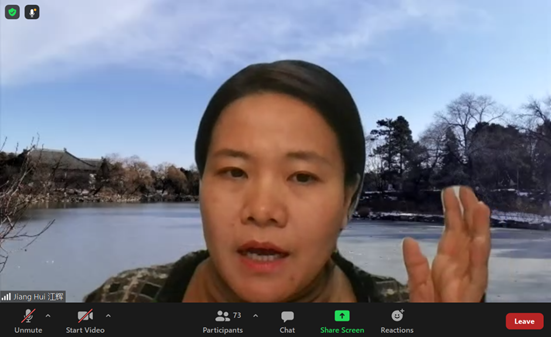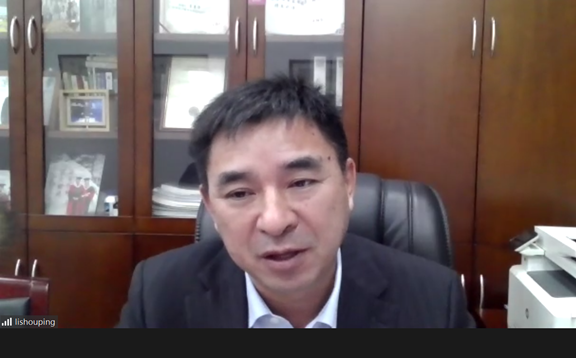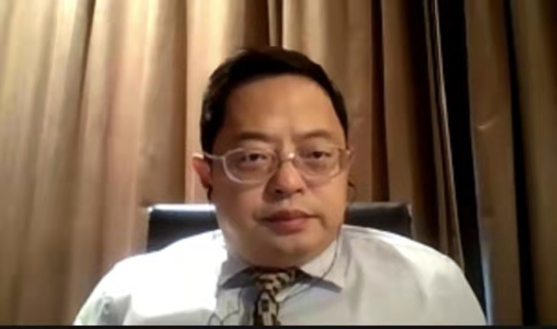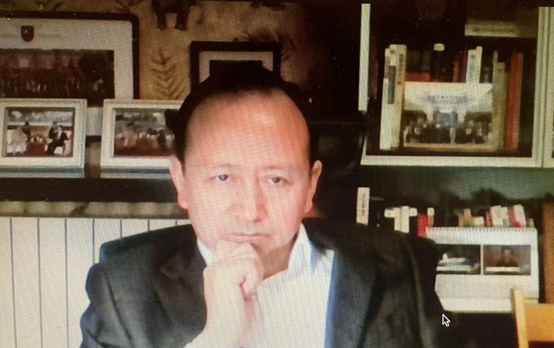On January 28 and 29, 2021, the Ditchley Foundation, a leading British think tank, held a closed-door international conference themed “Space: the new space race and its intersection with power, the rules-based order and the economy.” The virtual event brought together over 70 guests from China, the UK, the US, Russia, Australia, Canada, Germany, Italy, India and Japan, among other countries. Participants engaged in in-depth discussions and proposed policy advice on three sub-themes: the geopolitical implications of space development and competition, the economic implications of the progress being made on space, and how countries might collaborate in the utilization of space so as best to address shared global challenges.
Chinese participants, referred by the China Forum, included JIANG Hui, Director of the Department of International Cooperation of the China National Space Administration (CNSA); LI Shouping, General Director of the Space Law Center of CNSA; WANG Cheng, Secretary General of the China Space Foundation; and Zhou Bo, Research Fellow at the Center for International Security and Strategy, Tsinghua University.
In response to the participants’ concerns about China’s space programs, Jiang Hui expressed her appreciation for their congratulations on the Chang’e 5 mission, and briefed the panel on the achievements of China’s Lunar Exploration Program and the future of the country’s space capabilities. In respect of the development in space, the Chinese government has always been committed to peaceful utilization, equality and mutual benefit, and win-win cooperation, said Jiang. China respects the principle of openness and is dedicated to working with other countries in the utilization of space. She highlighted that only through dialogue, exchange and cooperation can the international community achieve greater progress in space and more advancements in science and technology.

Professor Li Shouping is General Director of the Space Law Center of the China National Space Administration and Dean of the School of Law of Beijing Institute of Technology. He believes that the existing legal system provided by international space law can no longer keep pace with the rapid advances in science and technology. The current legal framework and management mechanisms for international space governance have failed to address present governance challenges in a self-consistent manner or prevent emerging ones. He underlined that no country can solve these problems alone; it requires multi-win international cooperation guided by the vision of a community with a shared future for humankind, in order to establish and improve the existing international space law to cater to fast-evolving space technology and tackle the space challenges faced by humanity.

Space technology is vital to address global challenges represented by global climate change and environmental protection, noted Wang Cheng. While focusing on capacity building, countries should place more emphasis on resource openness and sharing, as extensive and open international cooperation and exchange may effectively save resources and improve efficiency. We are seeing fresh dynamism from market-based innovation and far-reaching transformations in the space industry and its business models, but risks and challenges remain. A fair, equitable, and widely adopted international order would allow space technology to better benefit our society, and the education of the younger generation within the space sector is a key piece of the solution.

How might China and the US cooperate rather than compete with each other in space? Zhou Bo believes that the first step would be the repeal of the Wolf Amendment, which limits NASA from working with Chinese entities unless a project is explicitly authorized by the US Congress or certified by the FBI. In addition, he believes that the two countries need to resume dialogue on space, cooperate in their exploration of the Moon and Mars, and steer other countries away from taking sides and, instead, towards a collective effort in building outer space capabilities.

Participants agreed that geopolitical or geoeconomic relations in space are rooted in terrestrial ones, among which two of the major players are the US and China. Alliances between them or with other players will shape the path we take in building our space capabilities. All countries involved should share the responsibility to determine, through dialogue and cooperation, the way forward for human exploration and the development of space, and address such challenges as climate change and security together by continuing to maximize their strengths in space technology.
The Ditchley Foundation, established in 1958, is a non-governmental, non-profit think tank in the UK. It is dedicated to building networks across the globe to facilitate exchanges between countries and institutions. Ditchley aims to bridge differences and promote understanding so that the world can move toward solutions to complex problems. In recent years, Ditchley has directed growing attention to the global role of China on top of its traditional focus on transatlantic relations and Europe.
The China Forum is a permanent program established in 2019 under the Center for International Security and Strategy, Tsinghua University, with the support of Shanghai Chunqiu Institute for Development and Strategic Studies. It endeavors in the referral and support of outstanding Chinese scholars, former officials, entrepreneurs and media professionals to attend international conferences, publish articles via domestic and international outlets, and produce and release videos and audios to introduce China and promote the international community’s understanding of China.

